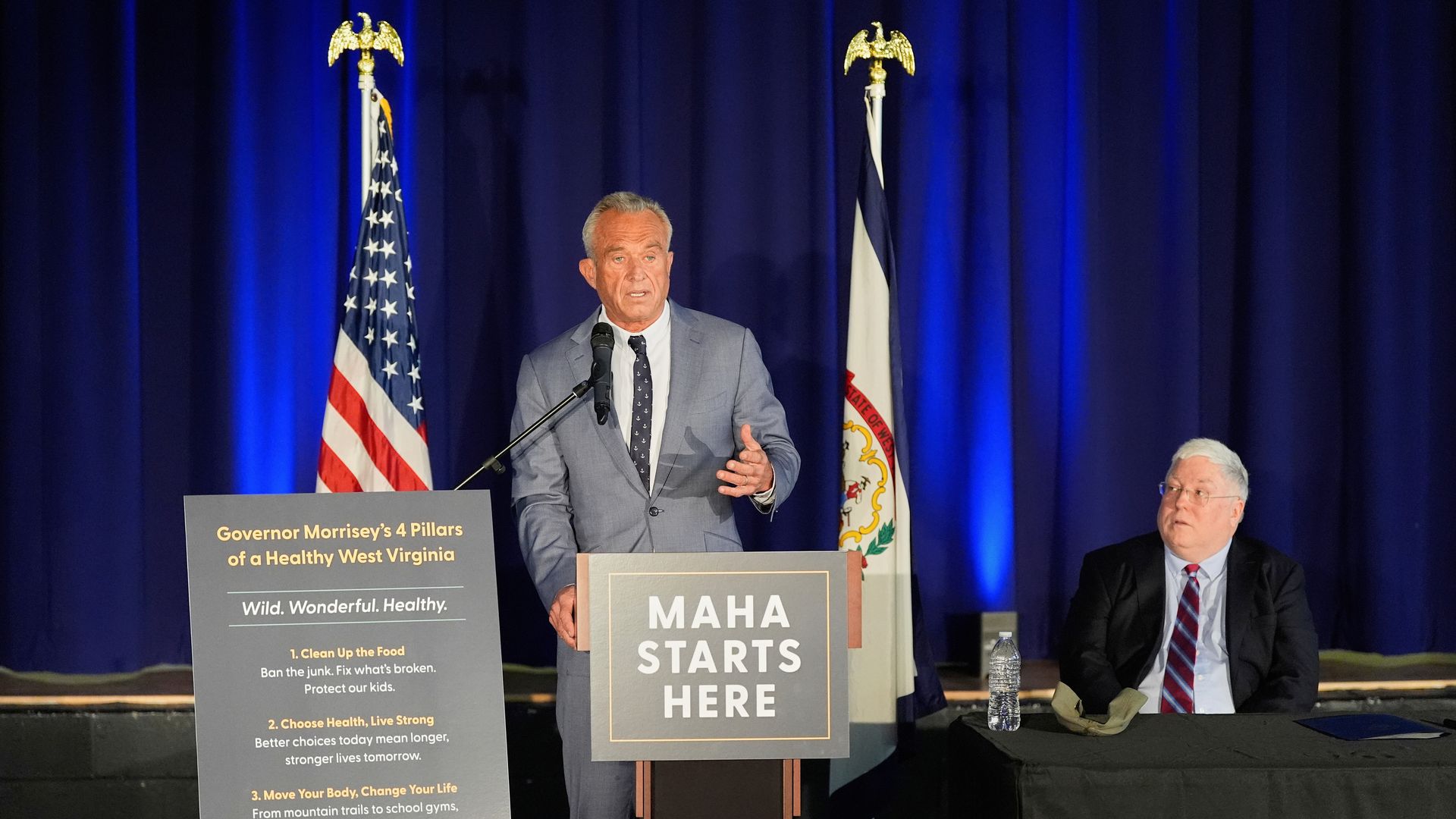Analyzing the controversy surrounding RFK Jr.'s comments on Governor Justice's weight and its impact on public discourse.
Robert F. Kennedy Jr., during a campaign event, made comments about the weight of West Virginia Governor Jim Justice, sparking immediate controversy and accusations of body shaming. This article delves into the specifics of Kennedy's remarks, explores the political context, and examines the wider implications for political discourse and the ongoing debate about health and body image in public life.
Table of Contents
The Remarks in Question
During a political rally, Robert F. Kennedy Jr. alluded to Governor Jim Justice's weight, suggesting it might impact his ability to effectively govern or perform certain physical tasks. The specific phrasing used was interpreted by many as a direct attack on Justice's physical appearance and, consequently, his competence. While the exact wording varied depending on the source cited, the underlying message focused on Justice's weight as a potential impediment to his duties. These remarks were quickly amplified through social media and traditional news outlets, igniting a firestorm of debate.
Political and Personal Context
The incident occurred within a highly charged political environment, where Kennedy was actively campaigning against established political figures. West Virginia, a state with a history of complex political dynamics, served as the backdrop for this confrontation. Governor Justice, a Republican, has faced previous criticism regarding his health and weight. Understanding the pre-existing political tensions and Justice's public image is crucial for interpreting the significance of Kennedy's statements. Additionally, Kennedy's own past controversies and outspoken views on various topics contribute to the overall context.
Public and Political Reactions
The immediate reaction to Kennedy's comments was largely negative, with many condemning them as insensitive and inappropriate. Political figures from both sides of the aisle criticized the remarks, emphasizing the importance of focusing on policy issues rather than personal attacks. Advocacy groups for body positivity and those concerned with weight stigma also voiced their outrage, highlighting the potential harm caused by such statements. Some defended Kennedy, arguing that he was simply raising legitimate concerns about the governor's health and ability to serve effectively. However, this viewpoint was largely overshadowed by the widespread condemnation.
Implications for Political Discourse
This incident raises serious questions about the standards of acceptable political discourse. The use of body shaming as a political tactic is widely condemned, as it distracts from substantive issues and perpetuates harmful stereotypes. This event may influence future campaigns, potentially discouraging similar attacks or, conversely, normalizing such behavior. The media's role in amplifying and analyzing these remarks also plays a significant part in shaping public perception and setting precedents for future political debates.
The Health and Obesity Debate
While Kennedy's remarks were criticized as body shaming, they also inadvertently reignited the ongoing debate about health, obesity, and public figures. Some argue that a public official's health is a legitimate concern, especially if it impacts their ability to perform their duties. However, others maintain that weight is a personal matter and should not be used to judge a person's qualifications or character. This delicate balance between legitimate concern and harmful stereotyping requires careful consideration and nuanced discussion.
Ethical Considerations
The ethical implications of Kennedy's remarks are significant. Public figures have a responsibility to uphold certain standards of behavior and avoid making statements that could promote discrimination or prejudice. Body shaming can have a profound impact on individuals and society as a whole, contributing to negative body image, mental health issues, and social stigma. The incident underscores the need for greater awareness and sensitivity regarding body image issues in the political arena.
Concluding Thoughts
The controversy surrounding RFK Jr.'s comments on Governor Justice's weight serves as a stark reminder of the ongoing challenges in achieving respectful and substantive political discourse. While raising concerns about a public official's health may be legitimate in some contexts, resorting to body shaming is unacceptable and counterproductive. This incident should prompt reflection on the ethical responsibilities of public figures and the need for a more inclusive and compassionate approach to political debate.
